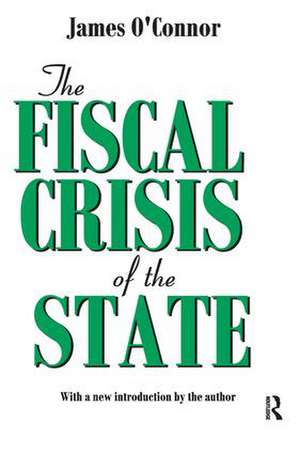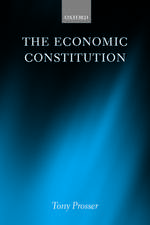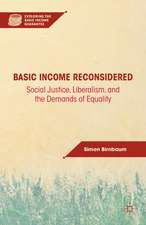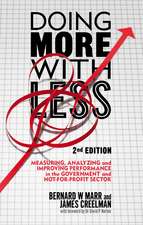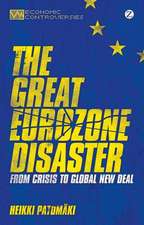The Fiscal Crisis of the State
Autor James O'Connoren Limba Engleză Hardback – 14 iul 2017
| Toate formatele și edițiile | Preț | Express |
|---|---|---|
| Paperback (1) | 435.17 lei 6-8 săpt. | |
| Taylor & Francis – 30 apr 2001 | 435.17 lei 6-8 săpt. | |
| Hardback (1) | 1109.18 lei 6-8 săpt. | |
| Taylor & Francis – 14 iul 2017 | 1109.18 lei 6-8 săpt. |
Preț: 1109.18 lei
Preț vechi: 1352.65 lei
-18% Nou
Puncte Express: 1664
Preț estimativ în valută:
212.24€ • 218.96$ • 177.12£
212.24€ • 218.96$ • 177.12£
Carte tipărită la comandă
Livrare economică 27 martie-10 aprilie
Preluare comenzi: 021 569.72.76
Specificații
ISBN-13: 9781138535664
ISBN-10: 1138535664
Pagini: 304
Dimensiuni: 152 x 229 x 19 mm
Greutate: 0.45 kg
Ediția:1
Editura: Taylor & Francis
Colecția Routledge
Locul publicării:Oxford, United Kingdom
ISBN-10: 1138535664
Pagini: 304
Dimensiuni: 152 x 229 x 19 mm
Greutate: 0.45 kg
Ediția:1
Editura: Taylor & Francis
Colecția Routledge
Locul publicării:Oxford, United Kingdom
Cuprins
Introduction; 1: An Anatomy of American State Capitalism; 2: Dimensions of the Crisis; 3: Political Power and Budgetary control in the United States; 4: Social Capital Expenditures: Social Investment; 5: Social Capital Expenditures: Social Consumption; 6: Social Expenses Of Production; Appendix; 7: Financing the Budget; 8: Financing the Budget; 9: The Scope and limits of Capitalist Reform
Descriere
Fiscal Crisis of the State refers to the tendency of government expenditures to outpace revenues in the U
